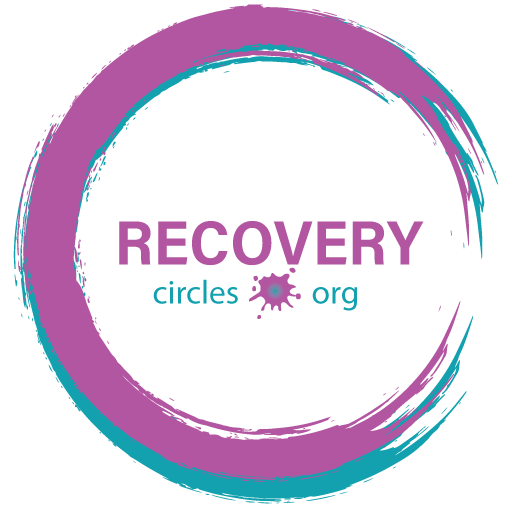Trauma Therapy
Are you looking for trauma therapy? Contact us or continue reading to learn about trauma therapy and how Sober House Philadelphia can support you on your path to healing.
You can also call us at (267) 412-3258
Featured In





“
I finally feel like I have a future. These people believed in me when I couldn’t.
– John L.
“
What I found here wasn’t just recovery housing in Philadelphia, it was a group of people who truly cared if I succeeded. They held me accountable and helped me rebuild.
– Tony F.
“
As a single mom, I needed a place I could trust. This affordable sober home in Philadelphia gave me that and more. I’m forever grateful.
– Jasmine T.
See more of our success stories
The stress and demands of daily life can take a toll on a person’s overall well-being from time to time. But when someone experiences a traumatic event, it can leave lasting emotional and psychological scars that may affect them for the rest of their lives.
Trauma is more common than many realize—statistics show that 6 out of every 10 men and 5 out of every 10 women experience at least one traumatic event during their lifetime. Incidents such as natural disasters, physical or emotional abuse, the death of a loved one, and exposure to war or violence often lead to deeper mental health challenges, including post-traumatic stress disorder (PTSD).
Sober House Philadelphia is committed to helping individuals facing these challenges by offering supplemental recovery services tailored to those living with trauma. Our trauma-informed approach ensures that each person receives compassionate, individualized care designed to support healing and long-term emotional wellness.
You can also call us at (267) 412-3258
What Is Trauma Therapy?
Trauma therapy is a specialized form of treatment that explores how traumatic events or experiences have affected an individual’s overall well-being. A licensed mental health professional—often a trauma therapist—works closely with the individual to address various dimensions of trauma. This includes understanding the types of trauma experienced, the emotional responses that followed, the formation of trauma memories, and how these factors may contribute to conditions like post-traumatic stress disorder (PTSD) or other trauma-related mental health challenges.
An essential part of trauma therapy is identifying trauma-related beliefs and personal triggers. This allows therapists to tailor treatment to each individual’s unique needs, ensuring that every trauma is approached and treated with care, sensitivity, and the appropriate therapeutic methods.
Does Sober Recovery Community Offer Trauma Treatment?
Sober House Philadelphia offers extended support for trauma survivors through its sober living and aftercare programs, embracing a holistic approach to long-term recovery. We integrate essential coping skills for individuals who have experienced trauma—including combat veterans—by guiding them through the healing process in a safe and supportive environment.
Our trauma-informed care approach helps clients understand and process the negative thoughts and emotions tied to their traumatic experiences. By addressing these underlying issues, we empower individuals to move forward in their recovery journey with resilience, emotional clarity, and renewed purpose.
After Care Program
Sober House Philadelphia works closely with its partner program, The Heights Treatment, in providing effective trauma treatment. One of the key components of this approach is the Partial Hospitalization Program (PHP), designed for clients who are transitioning in their recovery journey.
This program is ideal for individuals who no longer require 24/7 residential care but still need structured, intensive treatment. Clients participating in PHP can reside in their own homes or at a sober living facility while continuing to receive comprehensive therapeutic support. This model allows for greater flexibility and integration into daily life, helping individuals maintain stability while progressing through their healing process.
Sober Living
Living in sober residences offers a safe and supportive environment for individuals coping with mental health disorders and the aftermath of traumatic experiences. These homes provide structure and stability, which are essential for those navigating the emotional and psychological effects of trauma.
People who have completed trauma treatment or therapy programs often choose to reside in sober living homes as a next step in their recovery journey. These environments promote continued healing, helping residents manage lingering emotional responses or triggers that may stem from severe traumatic injuries. With peer support and consistent guidance, individuals are empowered to rebuild their lives and move forward with a renewed sense of purpose and resilience.

Sober Livings

Outpatient Treatments

Individualized Intensive Program

Sober Companions
Cities We Serve
What Does Trauma Therapy And Healing Involve?
Trauma therapy should provide individuals with a space to understand common responses to trauma. It helps them make sense of their thoughts and behaviors, offering clarity and insight into their experiences.
Learning About The Traumatic Event
Trauma therapy creates a safe space for individuals to understand the natural responses to trauma. It helps them explore why certain thoughts and behaviors arise, offering insight into their experiences and bringing clarity to what they’re going through.
Recognizing The Triggers
Through this process, individuals begin to uncover and work through trauma-related memories and emotions, gaining a deeper understanding of what they’ve experienced. Over time, they learn to recognize their triggers and develop healthier, more empowering ways to respond.
Developing Healthy Coping Mechanisms
Trauma-related counseling sessions are designed to help individuals discover and strengthen healthy coping strategies. By introducing tools like anxiety management and calming techniques, these sessions support more balanced and effective responses to painful memories and emotions.
Re-Establishing Safety In An Individual
Trauma-focused counseling sessions help individuals develop and strengthen healthy coping skills. With the support of techniques such as anxiety management and calming strategies, they learn to navigate painful memories and emotions in a more grounded and empowering way.
Practicing Trauma Processing Or Integration
Trauma counseling provides a safe, supportive space where individuals can start to reclaim a sense of power and control over their past. With compassionate guidance, they are encouraged to share their stories at their own pace, making sense of the trauma they’ve experienced. Over time, this process helps them integrate those experiences into everyday life, reshaping how they see themselves and the world around them.
What Are The Three Stages Of Trauma Recovery?
Healing from severe or complex trauma is a gradual process—it doesn’t happen overnight. With the guidance of a mental health professional and strong support from loved ones, individuals can begin to restore a sense of stability and normalcy in their lives. Full recovery often unfolds in three distinct phases, each playing a vital role in the journey toward lasting healing.
1st Phase: Safety and Stability
After you’ve been medically cleared, your healthcare provider will discuss your long-term care needs. As part of your continued recovery, a trauma specialist may recommend certain medications or supportive equipment. It’s important to follow their guidance closely.
In the initial phase of recovery, it’s essential for individuals to work closely with their counselor. This collaboration helps manage intense emotions, develop strategies to stabilize in the face of triggers, and reduce exposure to environmental stressors.
For those needing continued support, Sober House Philadelphia partners with trusted providers to offer relapse prevention services—ensuring individuals have the tools and care needed to avoid turning back to substances and stay focused on their healing.
2nd Phase: Remembering and Grieving
Once a patient has reestablished a sense of safety and stability, their specialist will gently guide them through the process of understanding their pain and recognizing what has been lost. This phase isn’t about reliving the trauma, but rather exploring it in a safe, supportive environment—allowing individuals to begin making sense of their experiences and integrating them into their healing journey.
3rd Phase: Restoring Relationships
With the support of a mental health counselor, patients can reach a place of emotional resolution—acknowledging their trauma and finding the strength to move forward. As they grow more confident in their healing, specialists may encourage participation in group reintegration activities, guided by a rehabilitation professional. These experiences help individuals adjust to everyday life and gradually rebuild meaningful connections with their loved ones.
What Are The Success Rates Of Trauma Therapy?
Trauma therapy can be highly effective, with success rates ranging from 77% to 100% for individuals who remain committed to their treatment. Common approaches include cognitive processing therapy, talk therapy, and exposure therapy—each tailored to help patients work through and heal from traumatic experiences.
With the guidance of a licensed therapist, trauma symptoms can often be significantly reduced or even fully resolved. However, the type of trauma and the specific nature of a person’s experience must be carefully evaluated before beginning any treatment. It’s also essential that any therapy used aligns with evidence-based practices outlined in the Diagnostic and Statistical Manual of Mental Disorders (DSM) to ensure patient safety and effectiveness.
At Sober House Philadelphia, we prioritize these standards. We ensure that every treatment option is thoroughly explained for both educational and therapeutic purposes, helping patients feel informed, supported, and empowered throughout their recovery journey.
Call our recovery specialists at Sober House Philadelphia today at (267) 412-3258 or fill out our contact form to learn how joining our Philadelphia sober living community can help you reclaim your life. Whether you’re seeking clean and sober housing, structured transitional support, or simply someone to talk to — we’re here for you.
